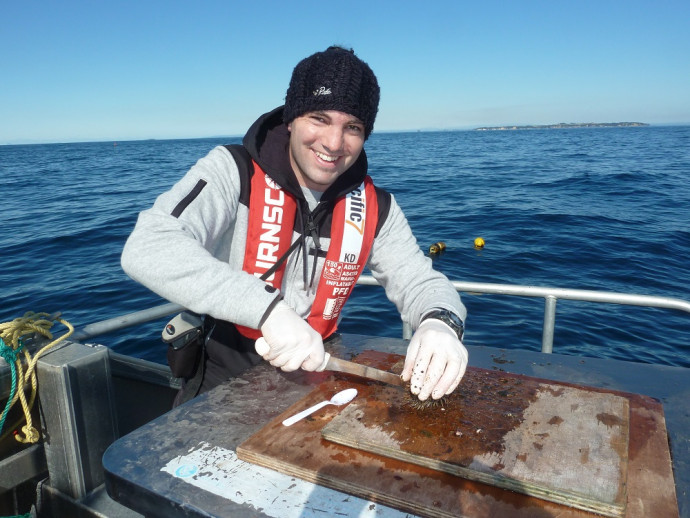St Thomas More Catholic School – Anthony Mills

2016 | Protecting our marine ecosystems
School: St Thomas More Catholic School
Host: Coastal Marine Field Station, University of Waikato
Region: Bay of Plenty
At St Thomas More Catholic School, science learning is integrated throughout the curriculum. Teachers aim to provide opportunities for science learning that are practical, inquiry-based and focused on authentic contexts. Through the Science Teaching Leadership Programme, the school hopes to develop a greater understanding of how the Nature of Science and how the Science Capabilities can be integrated into the curriculum. They aim to enhance the science learning in the school through improving staff professional development, expanding science resources, strengthening collaboration with science organisations and engaging in science-based projects in their local natural environment. St Thomas More are also developing their science programme through their links with other schools in a local Community of Learning (CoL).
Anthony has 12 years experience teaching in New Zealand primary schools and has held various leadership roles. He is passionate about curriculum integration and has a particular interest in how Science can be a catalyst for improving Literacy and Numeracy learning for all students.
Anthony has been placed at the University of Waikato’s Coastal Marine Field Station in Tauranga. During this placement, he has had many opportunities to collaborate with scientists and postgraduate students in a wide range of research projects. These included:
- Monitoring the toxic contamination from the MV Rena on marine ecosystems at Astrolabe Reef
- Tracking the seasonal feeding behaviour of short and long tailed sting-rays in the Tauranga Harbour
- Surveying the impact of dredging on the recruitment and habitat of Pipi in the Tauranga Harbour
- Locating, mapping and monitoring the habitat of marine sponge species in Tauranga
- Monitoring the settlement of marine organisms on various concrete composites at Motiti Island
Through the phase one experience, Anthony has explored how the Nature of Science and the Science Capabilities are enacted in the practical work of scientists and how this can be adapted for the school science programme. He has also developed strategies for how schools can connect with science organisations in practical citizenship projects. Through the programme, Anthony has gained an understanding of how to build relationships with whanau, local iwi and the wider community by adopting culturally responsive science practice. Another benefit of his host placement is that he has acquired a range of practical fieldwork skills and has extended his knowledge of the ecology, biology and physiology of a wide variety of marine species. The Enhancing Leadership Course at the University of Otago has developed Anthony’s strategies for visionary leadership, effective communication and implementing change.
The Science Teaching Leadership Programme has provided Anthony with an incredible professional learning journey. He is looking forward to applying this learning in the school environment. He would like to thank Dr Phil Ross and the staff at the Coastal Marine Field Station for their guidance. Anthony would also like to thank the Royal Society of New Zealand and St Thomas More School for their support in this opportunity.
